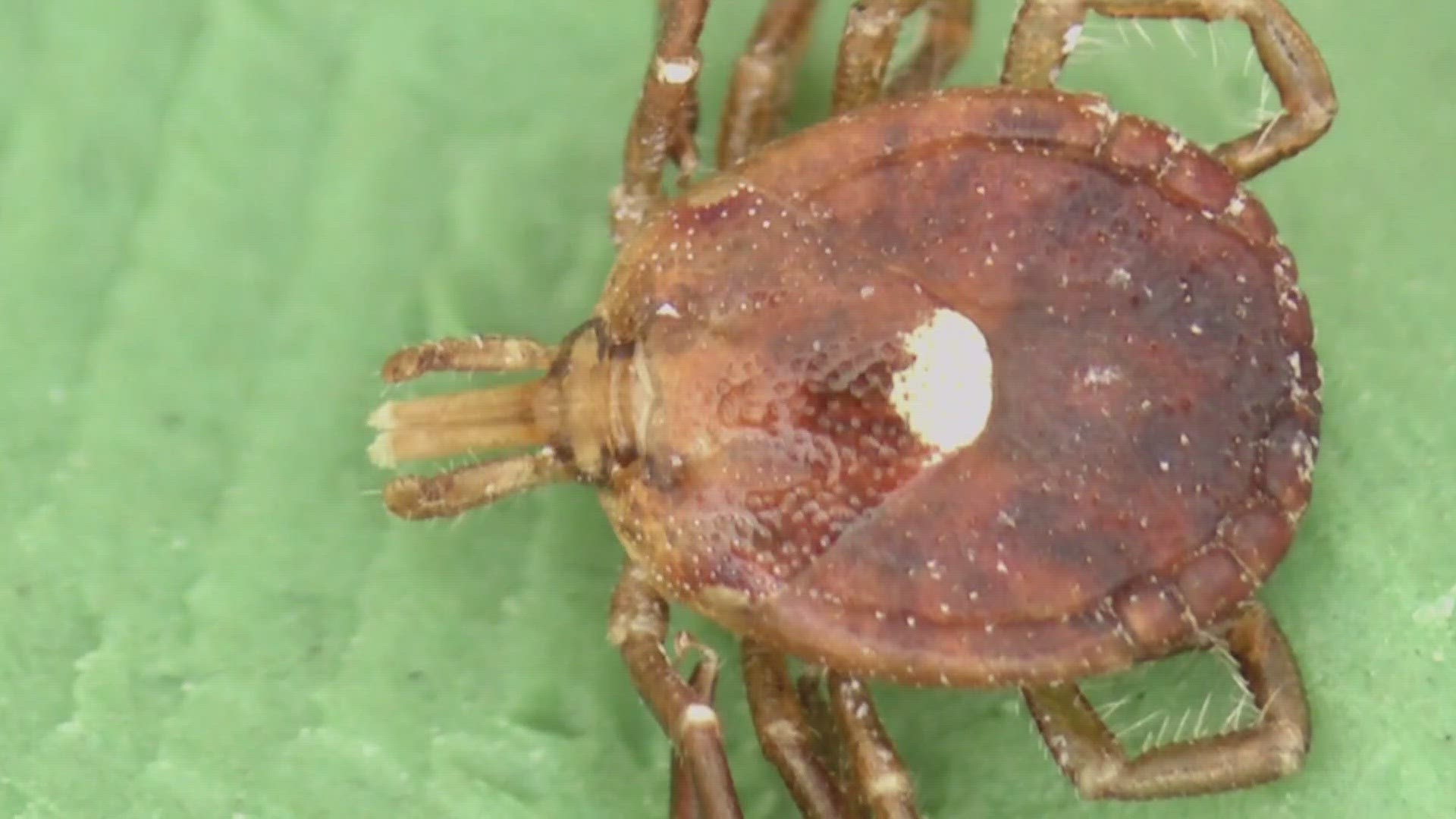AUGUSTA, Maine — It's a potentially life-threatening condition that impacts half a million people in this country, according to the U.S. Centers for Disease Control and Prevention.
Alpha-Gal Syndrome is linked to a bite from the Lone Star Tick, but federal health officials haven't ruled out other ticks, including the deer tick. Requiring the Maine CDC to track and report cases of Alpha-Gal to the feds is the focus of a bill that lawmakers in Augusta are considering.
Ken McCullick will always remember his reaction to the smell of barbeque outside his yard.
"When the smoke would drift through our neighborhood a mile away, I would react to it. I couldn't breathe outside," Ken explained.
He also had terrible GI symptoms after eating red meat. In August of 2021, after eating pork, he ended up in the emergency room hours later with heart failure. Things got worse after being given Heparin, a blood thinner, to help prevent blood clots.
"Heparin is made out of pork intestines. After eating pork and beef, they put that in my veins, and I immediately went out like a light. I flatlined and died," Ken said, holding back tears.
Ken flatlined again at Maine Medical Center after being given the same medication.
"I didn't know I had Alpha-Gal; the doctors didn't know I had Alpha-Gal," Ken stated.
Ken was later diagnosed with Alpha-Gal Syndrome, a tick-borne illness that leads to allergic reactions from eating red meat, including beef, deer, pigs, or goats. Some people also develop allergies to dairy and other byproducts from processing those animals, like medications, gelatin, and cosmetics.
Alpha-Gal is primarily linked to a bite from the Lone Star tick, but other ticks, including the black-legged and dog ticks, are potential carriers. Ken says he was bitten by two Lone Star ticks while living in Kansas and Florida.
Ken and other patients testified in favor of LD 2100, a bill requiring the Maine CDC to add Alpha-Gal to a list of diseases and conditions to be reported to the federal CDC. Experts say Maine does not have established populations of the Lone Star tick.
"Well, with this data, we can help prevent the spread of that aggressive tick and raise awareness about other potential carriers, including the deer tick, which is abundant in Maine," Beth Carrison, an Alpha-Gal survivor, testified.
Beth co-founded Tick-Borne Conditions United, which offers education, training, support, and advocacy for AGS and other tick-borne diseases. The nonprofit has launched a campaign to get Maine and states nationwide to add AGS to conditions reported to the U.S. CDC. Arkansas is the only state to mandate the reporting.
Meanwhile, the accomplished musician always carries an EpiPen and avoids all red meat, which has helped his symptoms. He says he'll never stop trying to raise awareness about Alpha-Gal.
The Maine CDC is opposed to the bill, which the agency says would be costly to implement and place a burden on providers, like allergists, who do not typically report to the Maine CDC.
The legislation is now headed to a work session, which should take place in the next few weeks.

